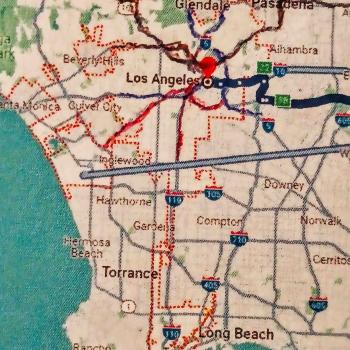
Having a table laden with delectable food and a stomach full of Thanksgiving dinner is, of course, a wonderful thing. But what about our hearts? Are they full of gratitude? Should believers enjoy the abundance bestowed upon them by God but fail to express thanks for their many blessings? Psalms alone references “give thanks” twenty times, so the answer is a resounding “No!” Instead, we should follow the psalmist’s example in Psalm 9:1 (NIV), “I will give thanks to you, Lord, with all my heart.” https://www.biblegateway.com/passage/?search=Psalm%209%3A1&version=NIV
A Formula for Giving Thanks
Giving thanks may be hard for some because they have never developed a habit of doing so and are unsure how to express gratitude. A simple formula, TSRF, helps to develop a way to give thanks or to do so in a more effective manner. These four letters stand for Timing, Specificity, Regularity, and Focus. Each letter represents an important facet of expressing thanks.
T is for Timing
While an expression of thanks is always appreciated, belated thanks seem diluted in sincerity. If truly thankful for what you receive, won’t you speak up right away? Timing matters, and the sooner thanks are given, the better.
Let’s say you give a grandchild $100 for their birthday in March. At Thanksgiving, the grandchild remarks, “Oh, by the way, Gram, thanks for my birthday money.” That gratitude would seem less heartfelt than an excited call on the grandchild’s birthday saying she’d just opened her birthday card and is thrilled to receive that money. Perhaps this gives a clue how God might feel at Thanksgiving when we tell Him how thankful we are for all He’s done for us this year.
The time to express thanks is immediately upon receipt of something. When I was growing up, my parents made me write a thank you note for any present received for a birthday, Christmas, or any other occasion before I could utilize the gift. Want to wear that beautiful sweater? Write a thank you note for it.

S is for Specificity
Be specific as to what you received when you thank someone. Doing so indicates sincerity as opposed to a short “Thanks” or “I appreciate the gift.” Tell your co-worker, ‘Thanks for giving me a ride home. I know you had to drive out of your way to assist me.”
Give God the same attention. Provide details when expressing gratitude to Him. Instead of merely saying, “Thanks for a safe trip,” mention your appreciation He helped you to find a gas station in a safe location in an unfamiliar place.” While the expression of gratitude is pleasing to God, it also strengthens your own faith as you see more clearly the specific things God does for you daily.
R is for Regularity
We give thanks at Thanksgiving because that is the point of the holiday. Nevertheless, Thanksgiving is not the only time in the year to express gratitude. Expressing thanks should be a regular, daily habit. Making this consistency easier is if you thank God as soon as you recognize He’s done something for you, you will be thanking Him often.
Intentionally cultivating an attitude of gratitude strengthens your relationship with God. Communicating with Him often to express thanks, your relationship deepens and grows. Aside from faith benefits, gratitude offers other positives in our lives. Research indicates it assists us in dealing with adversity, can help us feel more positive, and improves our health. https://www.psychologytoday.com/us/blog/the-color-of-wellness/202311/cultivating-an-attitude-of-gratitude.
F is for Focus
If you believe it would be difficult to find things to thank God for daily, your focus is too narrow. God is not only concerned with the big things in your life—do you have food, shelter, and health. How do we know? Because Paul instructed the Thessalonians to pray “continually.” https://www.biblegateway.com/passage/?search=I+Thessalonians+5%3A17&version=NIV Use of the word “continually” means God cares about ALL that is going on in your life and wants to hear from you about it.
A story my friend told in a church small group opened my eyes to what to thank God about. This woman had an appointment, but he parking lot was full. She became anxious she would be late. Lifting a quick prayer, she noticed a car pulling out of a parking space right up front. She thanked God profusely for providing a convenient parking spot for her. Why not thank God for the little things? Did you score the last box of muffin mix at the store you needed for dinner? Thank Him!

A Non-Thanksgiving Challenge
Giving thanks is not difficult. The TSRF formula can help. Keep your eyes open as to what you could express gratitude for, and then do it in a timely and specific fashion. When Thanksgiving ends, challenge yourself to spend one day identifying how many different things you could thank God for. Then tell Him about your appreciation for His blessings big (health) and small (a parking spot). Continue this practice regularly. Be full of thanks and not just full.


















